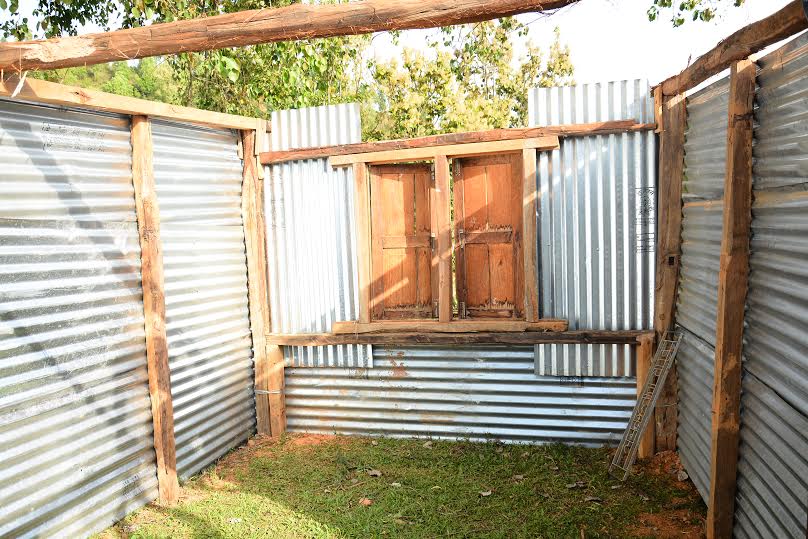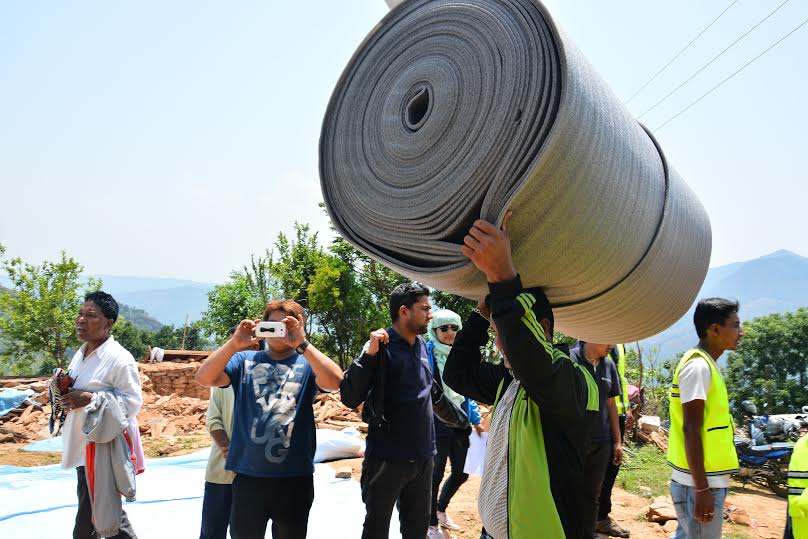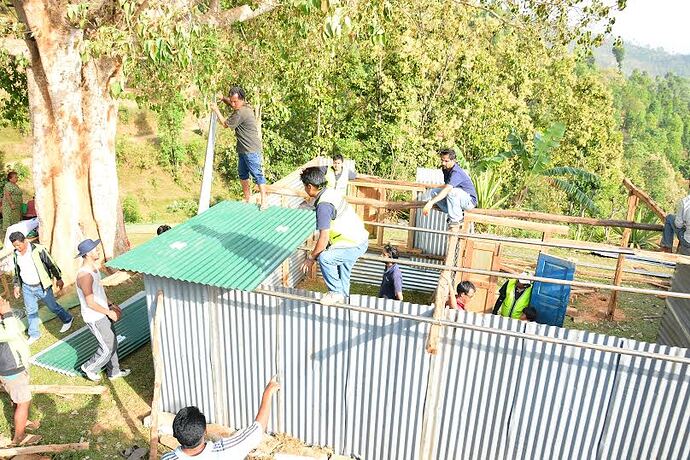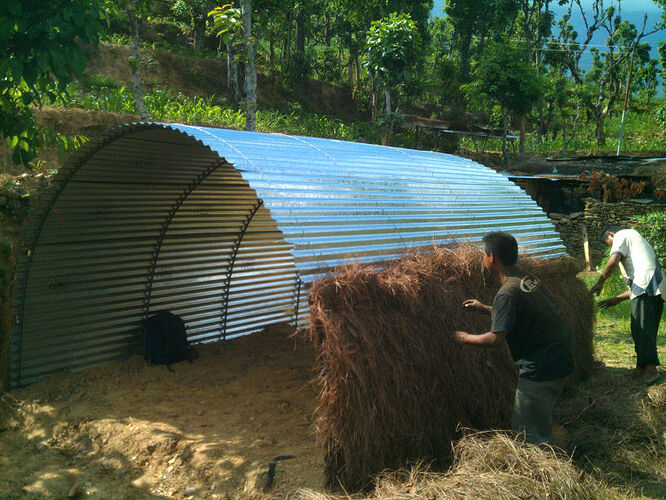Abhishek Mishra has been working independently and also with SanoChanno initiative by Maxmedia which is a step forward towards making sustainable shelters for those affected by Nepal Earthquake. He knew he had a part to play. And he did play that part, quite brilliantly.
Sustainable Shelter Project
“It took us a good month after the earthquake to get together and start working on a sustainable shelter project. There are around 40 people from the organization who were involved.” – Abhishek
Why Sustainable Shelter Project?
“The choice was made upon discussion with the staff at the office whose homes in the villages were destroyed. It was necessary to have someone in the know so we could know how much funding we would need to fulfill their need. We chose sustainable shelters because that seemed most appropriate after the need for food, water and temporary settlement had been fulfilled.”– Abhishek
Moment of Discovery
What was it like going in the field? Do you see a different side of the country? A different side of yourself, perhaps?
“Relief work is something that will probably always exist and the wants and needs of those affected are sometimes not very clear. I am proud to be a part of a generation that took the initiative at such a catastrophic time and helped people they had never met and never known. The spirit of camaraderie in Nepal is so strong.” – Abhishek
Stories that stay
And there are plenty. The overwhelming sense of self and that of our surrounding has not left us yet and it has been a month. Stories are memories that are embedded in our heads to stay. What is Abhishek’s story?
“An initial step taken by us was working in clearing out the debris at Swayambunath. It required special permission as it is a heritage site and there were fears of idols being stolen. We got the permission and helped clear out some of the clutter and the scene there was one of destitution. Not only the chaitya on the side being broken, but the buildings there were in very bad shape.” – Abhishek
Taking more than experience out of it
If we had to do the relief work again, how could we have made better decisions and bigger impact? We wanted Abhishek to share his experience.
“Better research, more fundraising so we could help adjacent villages as well.” – Abhishek
Work among teams
Coordination seems to be working for many teams that I talked to. The team that Abhishek is affiliated to has its own agenda and way of working.
“There hasn’t been much coordination with other teams so far. It is the organization working on its own and using its resources and manpower. We did meet the local police in places who were cordial.” – Abhishek
Realizing what is important
There is better clarity as to what to do in case of a natural disaster. For those who might be affected in the future, we have knowledge to impart for survival.
“There is another initiative called You Hike They Rise that focuses on the tourism of Nepal. It is a step towards galvanizing the perception of Nepal being a safe tourist destination and needs to be backed as tourism envelopes a huge chunk of the national income. For Nepal to get back on its feet, we need for it to flourish.” – Abhishek
As I thanked @abhishek for his inputs, I couldn’t help but get intrigued at the prospect of talking to You Hike They Rise. Concentrating on tourism looks like the best way to move forward. I hope we can tell you their story soon. Until then, keep making a difference!




